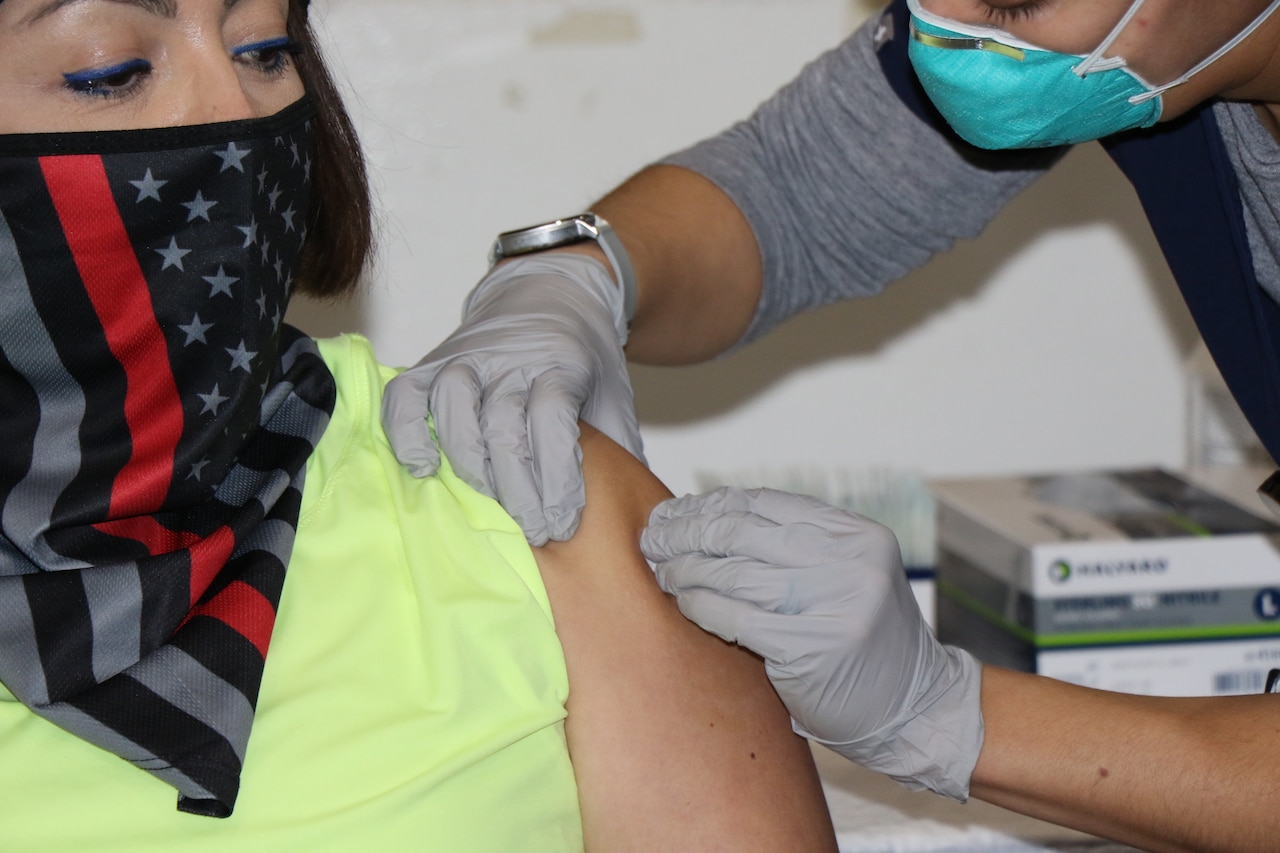
While COVID-19 vaccinations are currently being distributed across the world to begin the process of reining in the pandemic, the threat of contracting the virus remains, and the population still waiting on vaccinations continues to be at risk of infection. However, help may be on the horizon by way of STORM CHASER, a study led in the Military Health System by the Uniformed Services University’s Infectious Disease Clinical Research Program.
STORM CHASER, which stands for Study To Optimally Reduce Morbidity in Care Homes And Sites with Enhanced Risk, seeks to find out if COVID-19 could be prevented in those who have recently been exposed to the SARS-CoV-2 infection by administering an intramuscular monoclonal antibody within eight days of exposure and not yet symptomatic.
If successful, the product could be beneficial for those in high-risk circumstances, such as health care workers, those with COVID-19-positive household members, and restaurant workers. Those receiving the antibody could see immediate immunity and up to six months of protection from COVID-19 from a single dose.
But how do monoclonal antibody products differ from the vaccines currently being developed and administered?
“Vaccines require time to produce antibodies,” said Dr. Simon Pollett, an infectious disease physician and IDCRP lead for the STORM CHASER trial, “and thus do not offer immediate protection against COVID-19 when given after a SARS-CoV-2 exposure. The antibody product may provide very rapid protection against COVID-19 because it is given while the virus is incubating.”
The antibody therapy is administered via two shots during a single visit to study participants in their gluteal muscles. The scientists are also looking at whether viral shedding, which makes the individual with the virus contagious to others, will be reduced in those who get COVID-19 after receiving the antibody therapy.
Currently, the multinational STORM CHASER study is being conducted at multiple sites including five Defense Department facilities — Tripler Army Medical Center in Hawaii, Madigan Army Medical Center in Washington, William Beaumont Medical Center in Texas, Naval Medical Center Portsmouth in Virginia, and the Uniformed Services University in Bethesda, Maryland. IDCRP is coordinating the study across all five DOD sites.
Study teams at these sites are made up of active duty and/or GS/contractor physicians, nurses, pharmacists, and clinical research staff. Principal investigators for each site are Army Lt. Col. (Dr.) Jeffrey Livezey at the Uniformed Services University, Army Col. (Dr.) Viseth Ngauy at Tripler AMC, Army Col. (Dr.) Anjali Kunz at Madigan AMC, Dr. Gina Kubicz at William Beaumont AMC, and Navy Lt. Cmdr. (Dr.) Tida K. Lee at NMC Portsmouth.
“Those who have recently been exposed to SARS-CoV-2 and who are eligible for care in the Military Health System [including active duty service members] are potentially eligible to participate in this study at the five DOD sites,” said Navy Capt. (Dr.) Timothy Burgess, IDCRP director.
STORM CHASER is set to run for one year, with primary analyses likely occurring much earlier in 2021.
